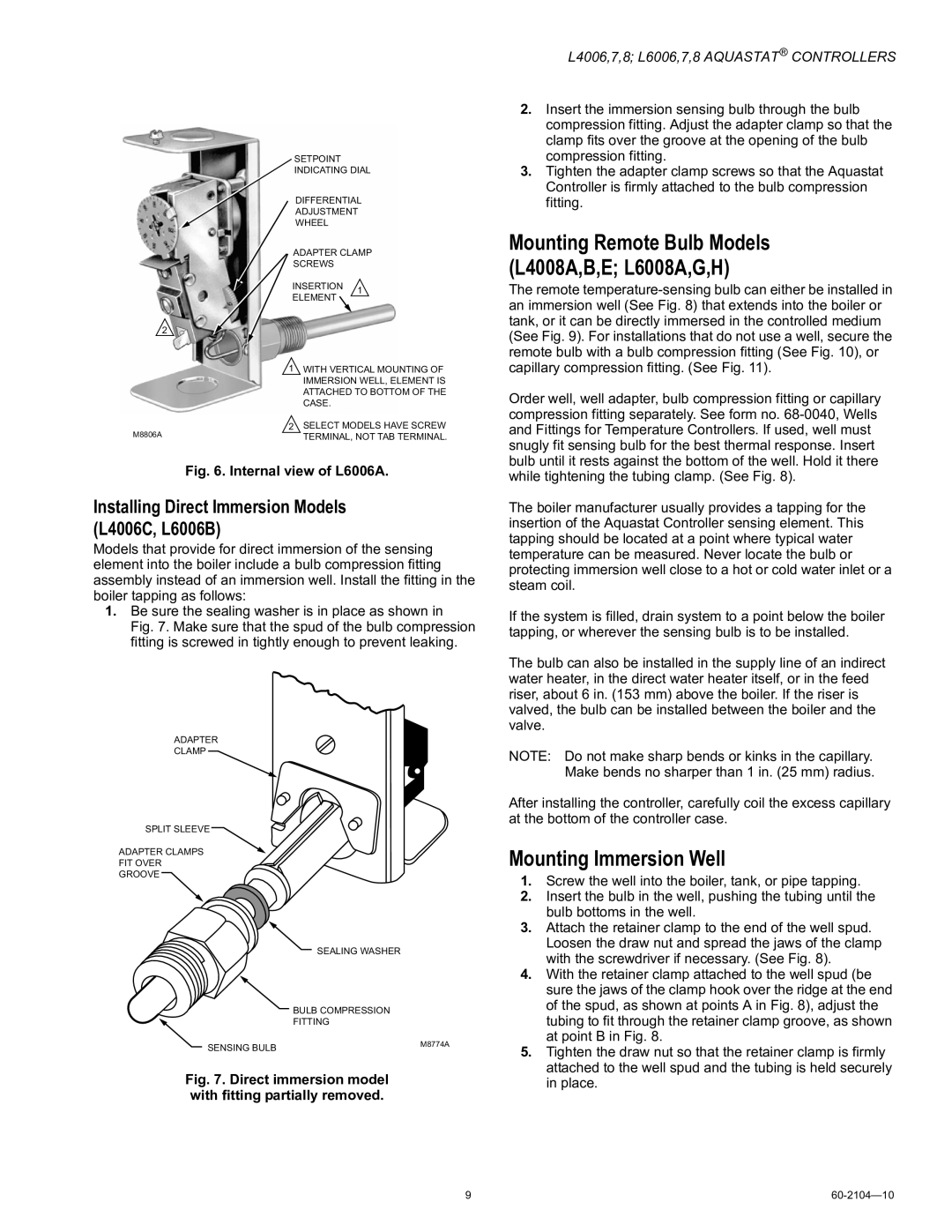L6006, L4008, L6008, L6007, L4007 specifications
Honeywell has long been a leader in the field of heating, ventilation, and air conditioning (HVAC) controls, and its range of controls including the L4007, L6007, L6008, L4008, and L6006 models exemplifies this commitment to innovation, reliability, and energy efficiency.The L4007 series is designed primarily for low-pressure applications, providing accurate control over gas and oil burners. With features such as adjustable differential settings, this series ensures that the heating systems operate optimally, enhancing both performance and safety. The robust construction and weather resistance make the L4007 an ideal choice for a variety of heating applications.
In contrast, the L6007 series takes it a step further by incorporating advanced technologies for more complex heating systems. These thermostats offer features like dual setpoint capabilities, temperature calibration, and improved diagnostics. They are particularly suited for commercial applications, where precision is essential for maintaining comfortable environments.
The L6008 expands on these features by introducing programmable capabilities. Users can tailor their heating needs according to specific schedules, leading to more efficient energy use. This model incorporates smart technology, allowing for integration with other smart home devices, which adds an extra layer of convenience for homeowners.
For those requiring more comprehensive control, the L4008 offers superior compatibility and flexibility. This model can manage multiple stages of heating or cooling and is perfect for systems that demand high degrees of control. With built-in protections against overheating and malfunction, the L4008 ensures a safe operation for all heating systems.
The L6006 offers a unique solution for applications that require both heating and cooling capabilities. This model is designed for versatility, making it suitable for a range of environments, from residential to commercial. Its user-friendly interface and precise control settings simplify the operation and management of HVAC systems.
Overall, Honeywell’s L4007, L6007, L6008, L4008, and L6006 models reflect the brand's dedication to providing high-quality, reliable, and efficient control solutions for diverse heating and cooling needs. They are engineered with advanced technologies that prioritize user comfort, energy efficiency, and system protection, making them essential tools for modern HVAC applications.

